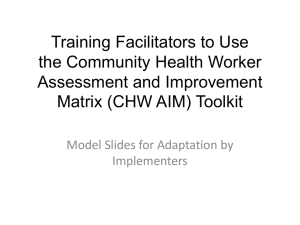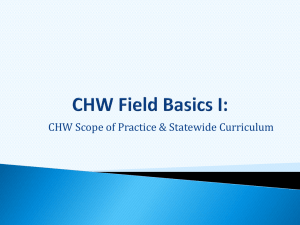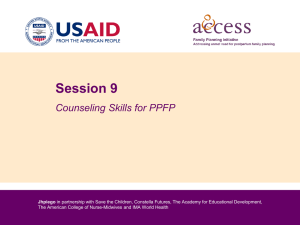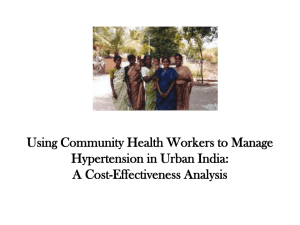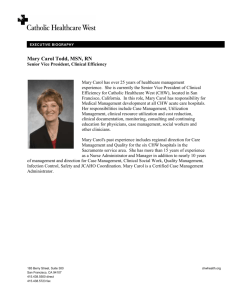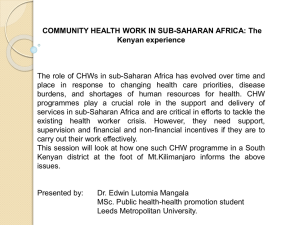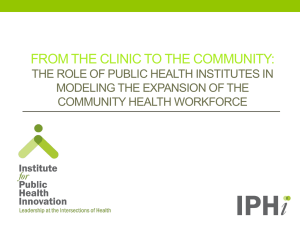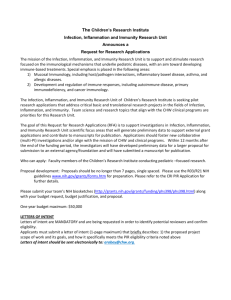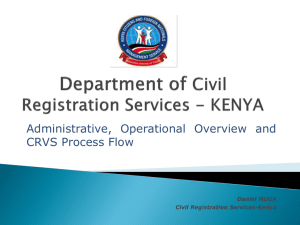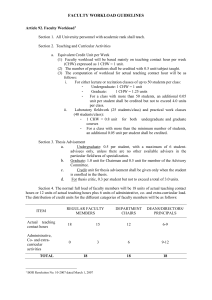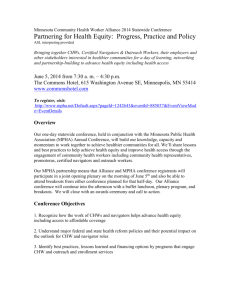chw philosophy of mistake management
advertisement
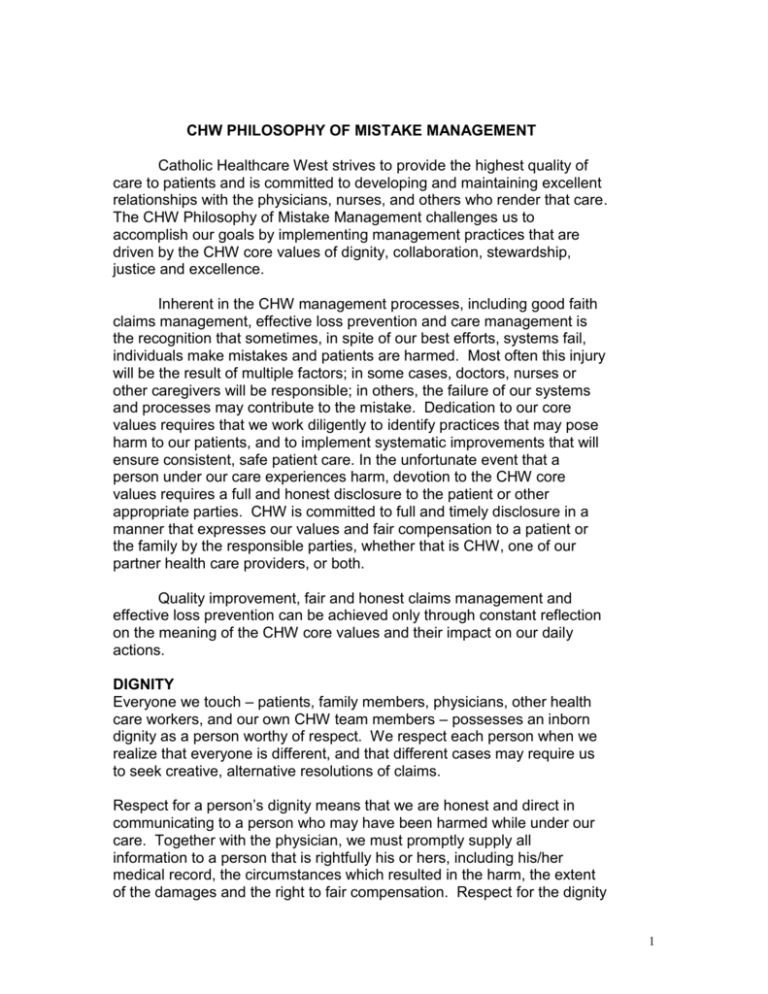
CHW PHILOSOPHY OF MISTAKE MANAGEMENT Catholic Healthcare West strives to provide the highest quality of care to patients and is committed to developing and maintaining excellent relationships with the physicians, nurses, and others who render that care. The CHW Philosophy of Mistake Management challenges us to accomplish our goals by implementing management practices that are driven by the CHW core values of dignity, collaboration, stewardship, justice and excellence. Inherent in the CHW management processes, including good faith claims management, effective loss prevention and care management is the recognition that sometimes, in spite of our best efforts, systems fail, individuals make mistakes and patients are harmed. Most often this injury will be the result of multiple factors; in some cases, doctors, nurses or other caregivers will be responsible; in others, the failure of our systems and processes may contribute to the mistake. Dedication to our core values requires that we work diligently to identify practices that may pose harm to our patients, and to implement systematic improvements that will ensure consistent, safe patient care. In the unfortunate event that a person under our care experiences harm, devotion to the CHW core values requires a full and honest disclosure to the patient or other appropriate parties. CHW is committed to full and timely disclosure in a manner that expresses our values and fair compensation to a patient or the family by the responsible parties, whether that is CHW, one of our partner health care providers, or both. Quality improvement, fair and honest claims management and effective loss prevention can be achieved only through constant reflection on the meaning of the CHW core values and their impact on our daily actions. DIGNITY Everyone we touch – patients, family members, physicians, other health care workers, and our own CHW team members – possesses an inborn dignity as a person worthy of respect. We respect each person when we realize that everyone is different, and that different cases may require us to seek creative, alternative resolutions of claims. Respect for a person’s dignity means that we are honest and direct in communicating to a person who may have been harmed while under our care. Together with the physician, we must promptly supply all information to a person that is rightfully his or hers, including his/her medical record, the circumstances which resulted in the harm, the extent of the damages and the right to fair compensation. Respect for the dignity 1 of the person and good faith claims management compels us to advise an injured party about his/her right to obtain advice from legal counsel, and other information appropriate to the case. Respect for dignity means that, acting through our administrative and clinical leadership and as soon as the facts are fully known, we take responsibility for any mistake made and apologize for any harm that has resulted. COLLABORATION Working together with physicians and other team members is at the heart of our service to patients. We are successful because of the work of an entire team. We strive to foster an atmosphere of trust, honesty, and transparency. We try not to blame one another. We work together to get to the bottom of problems and solve them. Our value of collaboration fosters the development of healthy relationships between system resources, such as the Risk Services, Legal, Ethics and Care Management Departments, and the divisions. Together we strive to deliver high quality health care in which the right resources are directed to the right persons at the right time. In the spirit of collaboration we will work with physicians to ensure respect for all individuals. JUSTICE In the context of risk management, justice has a very particular application. First of all, it means that we treat everyone fairly and equitably regardless of rank or status. Whether a patient is well educated and assertive or is someone whose native language is not English or is someone who is simply not confident within the medical system, all are equally deserving of fair treatment. With physicians and other partners, justice requires that we take our fair share of the burden of a claim and expect the same of our partners. Moreover, despite the perceived or actual difference between the status of physicians and nurses, both will be treated equitably by CHW. CHW will seek justice in honoring the larger public systems and rules for reporting errors, whether to boards or to departments of the government charged with protecting the public. STEWARDSHIP We hold precious assets of CHW – our human resources, our finances and the trust the public places in us. Sometimes protecting one may seem to jeopardize the others. In the management of mistakes, we believe no such conflict exists. From a risk management standpoint, it is axiomatic that patients are far more likely to seek legal representation if they believe that information has been concealed from them. Hence, timely disclosure of mistakes is cost effective. The trust the public gives to us, placing their health and often their lives in our hands, requires that we steward ALL of our resources with integrity. This means that we fairly compensate an injured party even when that involves the expenditure of CHW funds. At the same time, we are careful to share the burden of 2 claims and suits fairly with those institutions and individuals that bear some responsibility for them. Faithfulness to the value of stewardship compels us to explore every avenue for a just settlement. EXCELLENCE Always striving to do better requires a frank admission that we can always improve. With humility and determination, we seek constantly to improve the manner in which we provide care to avoid injury to patients, families or caregivers. In some instances, an individual is primarily responsible for a mistake. In many other cases, we know that errors occur because of the failure of systems to prevent them. As such, we seek to improve our care in an environment of learning rather than of punishment. Our dedication to improvement requires that we share claims information and other patient care data among all of our facilities and with other appropriate partners so that we can study the causes of our failures and effectively structure systematic opportunities for improvement. January 2001 Quality Committee CHW Board of Directors 3
